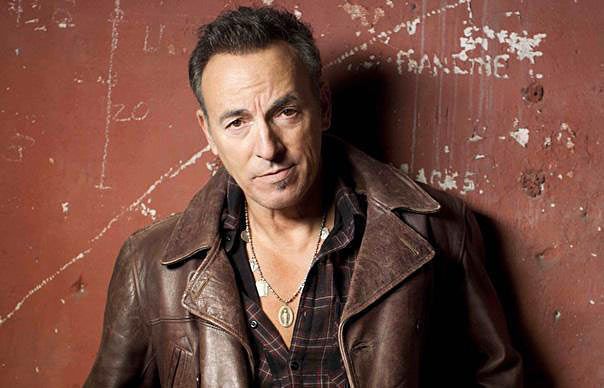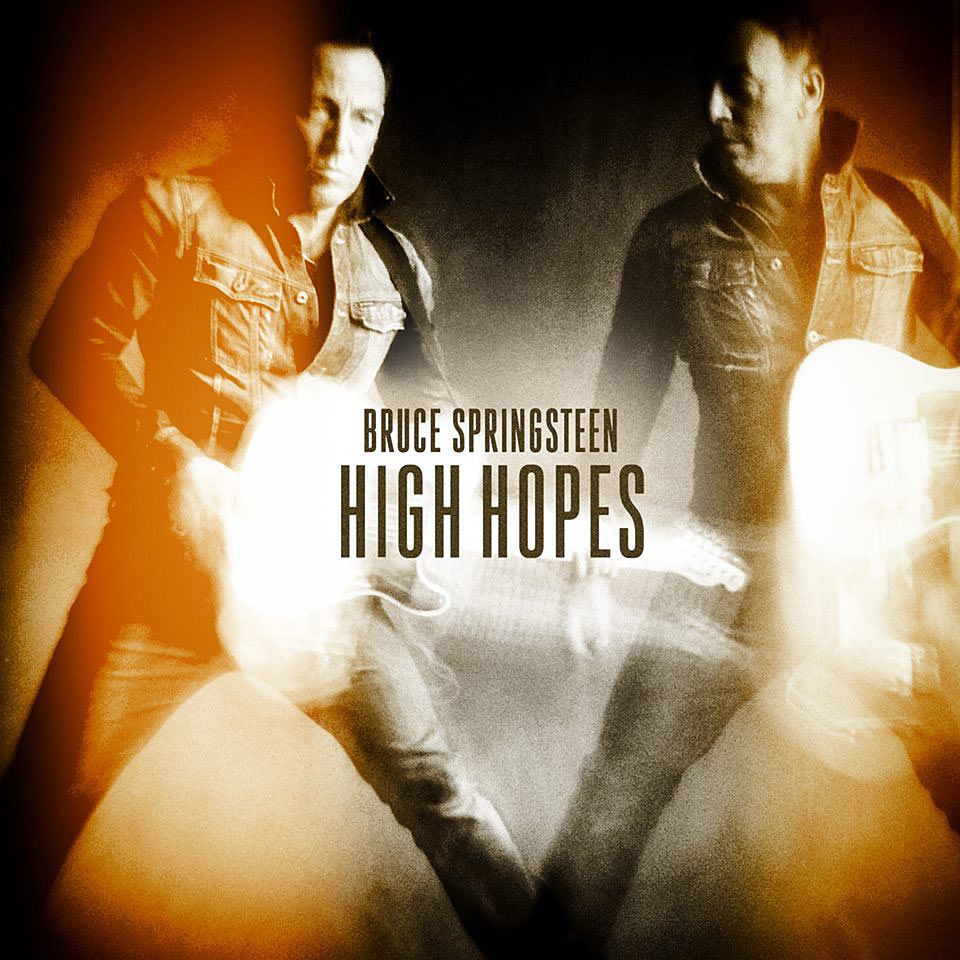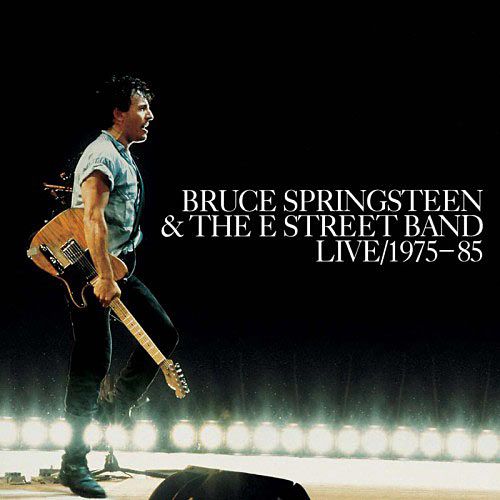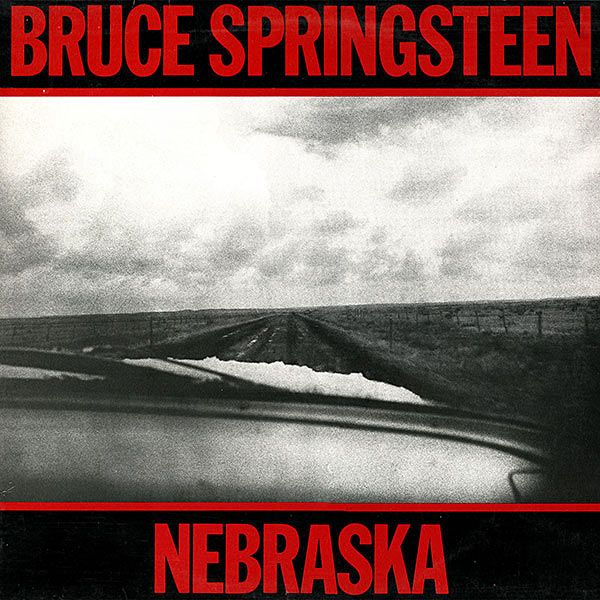I got a job working construction for the Johnstown Company
But lately there ain't been much work on account of the economy
Now all them things that seemed so important
Well, mister, they vanished right into the air
Now I just act like I don't remember
Mary acts like she don't care
--Bruce Springsteen, "The River"
Most of what I've written this week -- this column included -- was written to Bruce Springsteen's new album, "High Hopes," which was released on Tuesday. I listen to music when I write, and I write virtually every day... so I listen to a lot of music. If I had to pick only one musician to listen to the rest of my life, it would be Springsteen. Kind of curious, considering there was a time I couldn't stand him.
In college, I had a girlfriend who was a fervent Springsteen fan. I was not. This was during perhaps the pinnacle of Springsteen's mainstream popularity, when "Born in the U.S.A." was atop the album chart, spawning radio single after radio single. I did not get it. I looked at the ubiquitous videos, the stadiums full of fist-pumping frat boys, and decided that Bruce was not for me.
Most of what I was seeing, and reacting to, was the vapid packaging of Bruce in the media, the lazy shorthand of "blue collar hero." I told myself that Bruce wasn't edgy enough for me. I mean, anything with popularity that widespread had to be immediately ignored, right? I was young enough and dumb enough to still think being contrary was a valid reason to dismiss something.
My girlfriend, however, was a Bruce devotee before "Born in the U.S.A" catapulted him into another arena (literally). Obviously she was a lot smarter than I was.
She brought me flowers in poli-science class one morning, after we'd argued about something the night before. The news had broken that Springsteen was engaged to actress Julianne Phillips. She said, "Bruce is taken now, so I guess you're stuck with me."
Bruce and Julianne didn't last, of course. Neither did we. A year or so later we broke up, and she broke my college-boy heart. Twice, actually.
Not very long after, in November of 1986, I was moved to pick up "Live 1975-85," the boxed set by Springsteen and the E Street Band. Part of it was the pre-release hype, which was enormous for the first live release from an act legendary for its epic concerts. It also didn't hurt that the packaging was cool, the box maintaining the same dimensions as a vinyl album cover. More than anything, though, I picked it up because I was thinking, "What did she see in this guy?" Maybe it was my way of connecting to something -- someone -- that I'd lost.
I plucked the three-CD set off a central display in a record store (back when there were such things as record stores) and brought it home for a listen. What I found was different than I'd expected. During my first listen, I was drawn in by the quieter tracks, because I could more easily latch onto the lyrics, and the stories they told. The disc 2 tracks "Nebraska," "Johnny 99" and "Reason to Believe," in particular, drew me in, because they were stories.
Disc 3 opened with another story, the spoken preamble to "The River," about Springsteen's battles with his father, and then ultimately failing his draft physical for Vietnam. That's when it fully clicked for me: Bruce Springsteen is, first and foremost, a storyteller, recounting tales of hope and desperation, triumph and loss, love and loneliness.
After digesting the boxed set, I bought "Nebraska," because those live tracks had resonated with me so much. With the E Street Band on the sidelines, the album's arrangements were spare, even sparse. The stories were those of serial killers, brothers on opposite sides of the law, hopeless losers, the downtrodden struggling to merely survive. They were complete stories, told in four minutes. I was converted to the Church of Bruce.
I moved on, buying up everything Bruce had released. I learned that "Born to Run" earned every bit of its reputation as classic. So did "Darkness on the Edge of Town." They're both among my all-time favorite albums now.
Yes, even "Born in the U.S.A.," the album I'd dismissed during Bruce's zenith, turned out to be brilliant in a populist way. It includes one my absolute favorite Bruce songs, "Downbound Train," a tale of lost love and a lost life that contains one of my favorite lines ever: "Now I work down at the car wash, where all it ever does is rain." The imagery is so vibrant, it tells the story in shorthand... just like the imagery in a comic.
Bruce's catalog is filled with songs like that: the operatic doom of "Jungleland"; the wretches on the run in "Atlantic City"; the rust-belt downfall of "Youngstown," symbolizing the larger, vanishing America. On "High Hopes," the literary imagery is overt in a searing new version of "The Ghost of Tom Joad" (with guitarist and sometime comic writer Tom Morello). Mentioning even a few unfairly ignores so many others.
More often than not, the themes are universal, but they're explored via small stories and average people. The characters have names like Jimmy the Saint, Chicken Man, Magic Rat, Joe Roberts, Crazy Janey, and of course Candy.
That's what interests me, both as a reader and a writer. I often use the example of the contrast between Tom Clancy's superbly capable Jack Ryan, and Cary Grant's Roger Thornhill in "North by Northwest," an ordinary man thrust into extraordinary circumstances. I'm entertained by Jack Ryan (at least the cinematic version), but I identify with Roger Thornhill. I'm involved in his story.
When I'm asked about my writing influences, I always mention Alan Moore, Frank Miller, Jim Starlin, Edgar Rice Burroughs, Dickens and Stephen King (whose work was also introduced to me by that same girlfriend). But truth be told, that list isn't complete with Bruce Springsteen. He's influenced what I write, and the way I write it. I would not be the kind of writer I am now without having discovered Springsteen.
I tend to think the number of casual Bruce fans is few. You're either a convert, or disinterested. We converts are a tribe unto ourselves, immediately recognizing kindred spirits. Troy Peteri, who letters most of what I write, is part of the tribe. So is comics journalist Russ Burlingame, who writes for ComicBook.com, and sent me the deluxe version of "High Hopes" as a gift.
If you're a Bruce fan, you know everyone in the tribe, even if you've never met them. Standing in line for hours in hopes of gaining pit access for a Bruce concert, you're surrounded by your brothers and sisters. Everyone compares how many shows they've seen, which ones were best, set lists, encores.
When I was at CrossGen in Tampa, the company had a luxury suite in the local arena (where the Tampa Bay Lightning still play their games). We had access to tickets for almost any event held there. One of them was Bruce and E Street Band.
Mark Alessi, the CrossGen CEO, didn't attend too many concerts. He generously offered up the concert and hockey tickets to the employees for free. But Alessi went to see Bruce, because he wanted to hear him play "Born in the U.S.A." I wound up sitting just in front of him in the box.
Alessi was disappointed... well, more like substantially annoyed... that Bruce didn't play "Born in the U.S.A.," which like a lot of people, he believed was a pro-American, patriotic song. A simple understanding of the lyrics, however, shows it's the polar opposite. It's a song about America forgetting its veterans when they came home from Vietnam. (It's sadly even more relevant now, with veterans from Iraq and Afghanistan getting short shrift from the same government that sent them into combat.)
But Bruce had, in fact, played "Born in the U.S.A.," a stripped-down, slide-guitar version that more accurately delivers the song's angry, accusatory message. Alessi never even realized he'd heard the song.
Some people get Bruce Springsteen, some don't. I'm so glad I became one of those who does.
Ron Marz has been writing comics for two decades, and thinks it's pretty much the best job ever. His current work includes "Witchblade" and the graphic novel series "Ravine" for Top Cow, "The Protectors" for Athleta Comics, his creator-owned title, "Shinku," for Image, and Sunday-style strips "The Mucker" and "Korak" for Edgar Rice Burroughs, Inc. Follow him on Twitter (@ronmarz) and his website, www.ronmarz.com.




